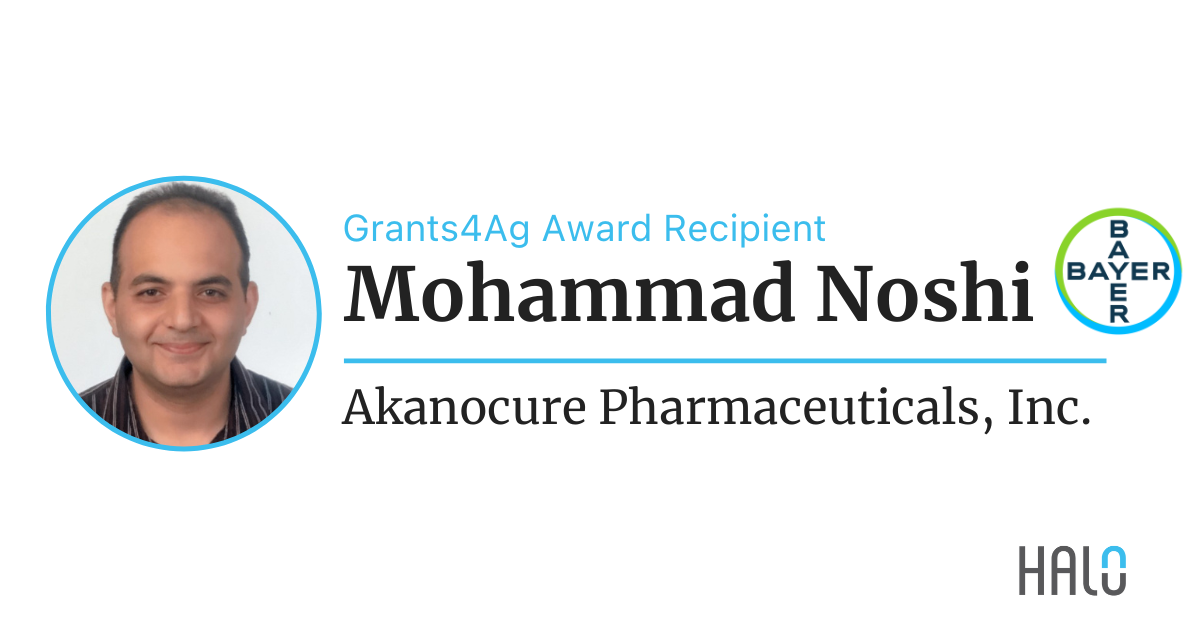Some crops can be damaged by harmful fungi, yet creating effective antifungal chemicals can be difficult. As a result, Dr. Mohammad Noshi is working to improve the design, synthesis, and safety of these compounds for stronger crop protection. View Halo Profile >>
About Mohammad Noshi
Dr. Mohammad Noshi is the Co-Founder and Chief Scientific Officer of Akanocure Pharmaceuticals, Inc. Noshi is from West Lafayette, Indiana and completed his PhD at Purdue University. He is involved with the American Chemical Society.
Tell us about your research.
Our lab works on drug design and development with an interest in novel antifungal agents for crop protection. Our research is enabled by our proprietary diversity-oriented synthesis platform. We mine the Dictionary of Natural Products to find macrocycle scaffolds combined with in-silico screening/docking of in-house designed libraries of analogs to optimize the physicochemical properties and target binding. Synthesis of natural scaffolds is challenging, however using our platform, we designed a unified, scalable, and economic method to produce any analog of the chosen scaffold. The platform allows unprecedented control over optimization for activity and safety profiles.
Our company is developing novel antifungal agents with unique properties and modes of action that are much desired as new crop protection agents.
Can you explain that to a non-scientist?
Our company is developing novel antifungal agents with unique properties and modes of action that are much desired as new crop protection agents. Effective and safe antifungal compounds are challenging to develop. The hurdles are the design, synthesis of the usually complex structures, and safety, three problems that were solved using our technology. The high synthetic flexibility of our platform does not only solve the manufacturing problem but also ensures the continuous evolution of better candidates via surgical fine-tuning of the physical and chemical properties of the compounds to achieve the highest degree of efficacy and safety.
Why did you choose this area of research?
I chose this area of research as it is both important and exciting. Important because food shortage is a global and national security problem. The amount of loss in major crops due to fungal infections is enough to feed nearly 9% of the global population. And exciting because as many challenges as the field of crop protections faces like emerging resistances, synthetic challenges, and safety issues, we are certain we can contribute to the solution using our platform and its superior design, optimization, and manufacturing capabilities.
The high synthetic flexibility of our platform does not only solve the manufacturing problem but also ensures the continuous evolution of better candidates.
What are some of the real-world applications of your work?
Using our platform, a novel set of antifungal compounds were designed and synthesized. The compounds were designed to target a key fungal enzyme while sparing the corresponding enzyme in plants. In addition, the compounds were designed to be safe for the environment and for human consumption. The new compounds are meant to be broad-spectrum to target different species of fungi that affect wheat and corn crops.


